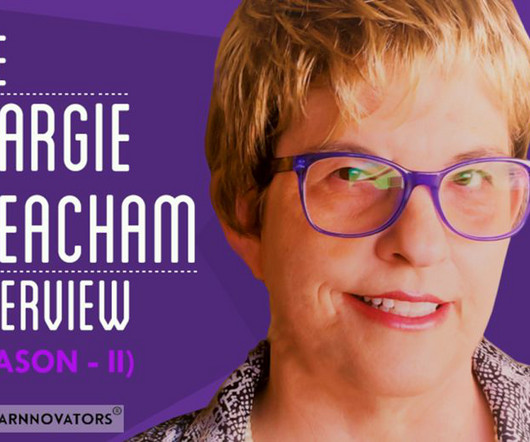MARGIE MEACHAM – CRYSTAL BALLING WITH LEARNNOVATORS (SEASON II)
Learnnovators
MAY 8, 2024
Margie also offers her own masterclass, AI for Talent Development Professionals, which prepares knowledge workers to use AI to enhance their own productivity by gaining workflow efficiencies. If so, how might this concept of a ‘Universal Coach’ shape the future of learning and development in organizations?
































Let's personalize your content